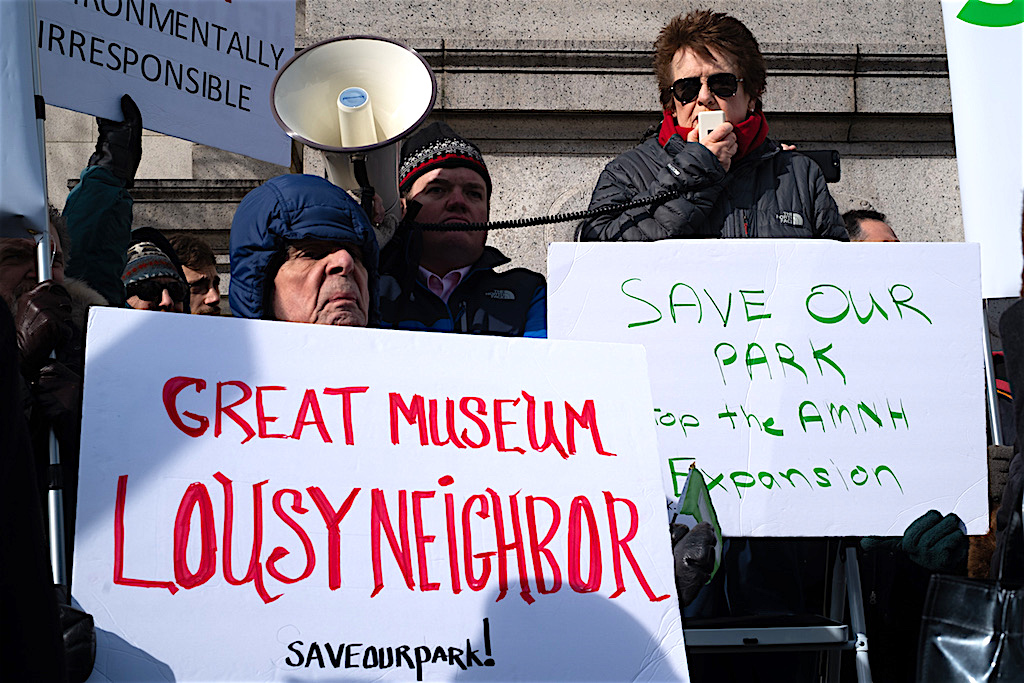BY ALEJANDRA O’CONNELL-DOMENECH | A New York State Appellate Court ruled in favor of the American Natural History Museum and the city in a lawsuit filed by park advocates who wanted to stop the museum’s expansion into Theodore Roosevelt Park.

The group sued the museum to block it from building the Gilder Center for Science, Education and Innovation, a five-story, 230,000-square-foot learning and exhibition space at 79th St. and Columbus Ave. that would occupy a quarter-acre of the park.
Community United to Protect Theodore Roosevelt Park argued that the project should have gone through the city’s land-use review process, the Uniform Land Use Review Procedure, or ULURP, plus needed approval from the state Legislature since the public green space would be “alienated” from park use by building the center.
On April 18, a panel of five justices with the New York State Supreme Court First Appellate Division ruled that the museum did not require approval under the city’s ULURP process to build the Gilder Center.
“It’s very disappointing,” said William Raudenbush, the chairpeson of Community United.
The ruling ends a year-long battle between the museum and the community group, which believes that the project would take away too much of the Upper West Side’s limited green space, cause noise pollution and strain local subway stations and service due to the 1 million people expected to visit the center in its first year.
Although the group could appeal the ruling to the Court of Appeals, the state’s highest court, Raudenbush said they unfortunately “lack the resources” to do so.
For its part, the museum argued that it is within its legal right to expand because of its 140-year-old lease with the city, which owns the land on which the museum sits.
Now, advocates will wait to see if their fears were founded or not.
According to Raudenbush, Community United will make sure to hold Borough President Gale Brewer and Councilmember Helen Rosenthal accountable for the multiple promises they made that the expansion would not overwhelm the park with foot traffic and worsen residents’ quality of life.
Both local politicians have publicly supported the project.
“We look forward to them keeping those promises,” Raudenbush said.
The Richard Gilder Center for Science, Education and Innovation is expected to open in 2021.































